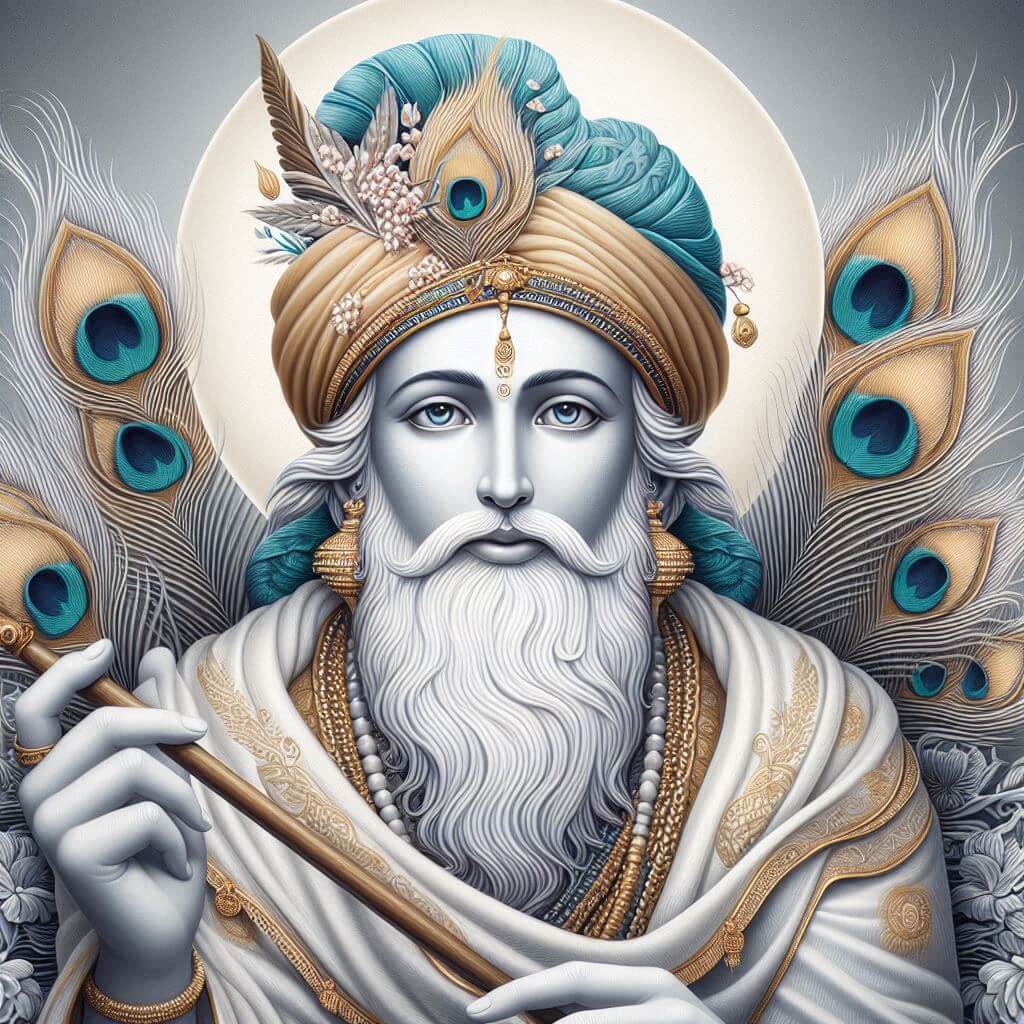Throughout the ages, saints and scriptures have spoken of a Supreme Being who is eternal, omniscient, and compassionate. This Supreme God is not only the Creator and Sustainer of the universe but also the kindest teacher who reveals the truth to His beloved souls. One of the most unique and profound ways in which the Supreme God imparts divine knowledge is through poetry — simple, rhythmic verses filled with deep spiritual wisdom. This divine approach isn't accidental; it's a deliberate method of communicating eternal truths in a way that touches the heart, enlightens the soul, and is easy to remember.
In spiritual tradition, it is believed that the Supreme God, Kavir Dev (God Kabir), descends in every age to liberate souls from ignorance and falsehood. During His most well-known appearance in 1398 CE in Varanasi, India, He revealed divine knowledge not through complex philosophical discourse, but through simple yet profound couplets and verses—dohas and sakhi—which hold the essence of true spirituality.
God Kabir: The Poet Form of Supreme God
In His divine incarnation as Sant Kabir, God demonstrated that the highest spiritual truths can be expressed in the simplest of words. His couplets (dohas) are filled with divine knowledge about the Supreme Abode (Satlok), the cycle of birth and death, the identity of Kaal (the deceiver god), and the true way of attaining salvation.
Here are a few of His famous verses:
"Kabira khada bazar mein, maange sabki khair
Na kahu se dosti, na kahu se bair"
Translation: Kabir stands in the marketplace, wishing well for all. He holds no enmity or alliance — he belongs to everyone, yet is bound by none.
Such verses are not mere poetry; they are divine instructions, a glimpse into the nature of God and the path to eternal peace.
Moko kahan dhoonde re bande, main to tere paas mein
Na teerath mein na moorat mein, na ekaant nivaas mein
Na mandir mein, na masjid mein, na Kashi Kailash mein
Translation: God Kabir clarifies that God is not found in pilgrimage places or idols, nor in remote retreats. Not in temples, nor in mosques—not in Kashi or Mount Kailash.
Kabira teri jhopdi, gal katiyan ke paas
Jo karenge so bharenge, tu kyon bhayo udaas
Translation: Kabir, your hut is beside the slaughterhouse. They will reap what they sow—why do you worry?
God Kabir is saying - One should not fear wrongdoing by others; every soul is accountable for its own deeds. Remain steadfast in truth.
Chalti chakki dekh kar, diya Kabira roye
Do patan ke beech mein, sabut bacha na koye
Translation: Seeing the grinding stones turn, Kabir weeps. Between the two stones (of birth and death), no one remains unharmed.
This doha highlights the suffering of the soul in the cycle of birth and death. Kabir Sahib laments that only one who follows true devotion can escape this trap.
Guru bin gyaan na upje, gyaan bin mukti na hoye
Guru gyaan dono avashyak, jeev kare jo koy
Translation: Without a Guru, knowledge does not arise; without knowledge, there’s no liberation. Both Guru and divine knowledge are essential for any soul seeking freedom.
Salvation is not possible without a True Guru and the right spiritual knowledge. Self-effort alone, without guidance, cannot lead to liberation.
God Kabir – The Eternal Poet Mentioned in the Vedas
God Kabir, who appeared in 1398 CE on a lotus flower in Lahartara Pond, Varanasi, is world-renowned for His divine poetic verses filled with spiritual wisdom. But this identity as a poet-saint is not just historical—it is scripturally ordained. The Rigveda mentions this divine attribute of the Supreme God in several mantras.
- Rigveda Mandal 9 Sukt 94 Mantra 1 states that the Supreme God wanders as a Poet.
- Rigveda Mandal 9 Sukt 96 Mantra 17 reveals that Kabir Dev shares His divine knowledge through His Kabir Vani.
- And Rigveda Mandal 9 Sukt 96 Mantra 18 further affirms that God Kavir is recognized as a poet, sage, or saint.
These clear Vedic descriptions perfectly align with the poetic form in which God Kabir delivered Tatvagyan (true spiritual knowledge) for the salvation of souls. His couplets and hymns are not ordinary poetry—they are divine revelations, fulfilling the eternal identity of the Supreme God as described in the Vedas.
Conclusion
The Supreme God, full of love and compassion, does not hide behind complex rituals or intellectual barriers. Instead, He makes Himself accessible to all—rich or poor, educated or illiterate—through poetic wisdom. Whether in the form of Kabir's dohas, the hymns of the Vedas, or the songs of saints, His voice echoes through the verses that awaken our souls.
To know and recognize the Supreme God today, one must seek the one who carries His poetic knowledge—a Tatvadarshi Saint, as revealed in the scriptures. Those who listen, understand, and follow this divine poetry will not only attain spiritual clarity but also eternal liberation.
 Minutes to read.
Minutes to read.

